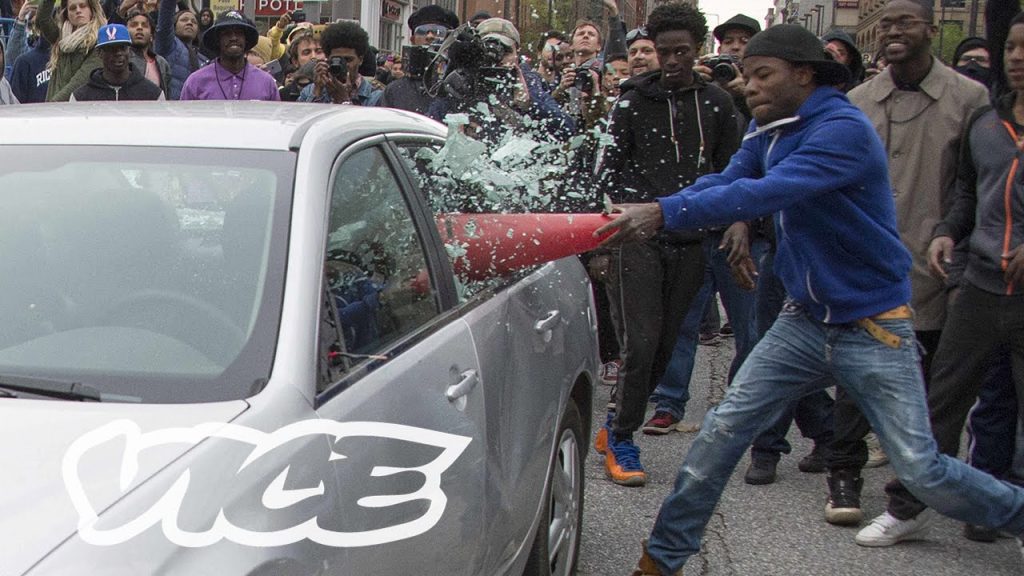The premiere episode of a new series from VICE, Money Bail takes a sharp look at America’s bail bonds industry, and finds a system that’s rigged to take advantage of many of the country’s most troubled and destitute citizens. Bail bondsmen are only permitted to operate in two parts of the world: the Phillipines and the United States. Vinne Magliano is one such bondsman. From his office in Baltimore, Maryland, Magliano is aggressive in marketing his services to many of the poorest neighborhoods in the city. He’s determined to make his business a well-known brand, and he’s the first in the area to offer payment plans to his clients. As a result, his profits total in the millions on a monthly basis. In a community hard hit by violent crime and racial injustice, many view his widespread self-promotion as a toxic ointment on a raw and infected wound. We hear the story of Allen Bullock, a young teen who was captured by police after vandalizing a car during the recent riots and demonstrations in Baltimore. Upon his arraignment, Bullock’s bail was set at $500,000, an astronomical sum of money especially considering the mild severity of his crime. In keeping with current bail regulations, his family had to pay at least 10% of that sum to procure his temporary release from jail. This down payment was not refundable, and in no way guaranteed a positive outcome in his case. In an all too common plight brought on by the industry, a family that was already struggling to make ends meet is thrown deeper into the well of financial ruin. Critics of this practice have long championed the elimination of the bail industry altogether. But they face powerful opposition from well-funded lobbyists who successfully argue for the status quo each election cycle. This trend does not apply In Washington, DC, however. As shown in the film, the bail industry has been abolished in the nation’s capital. By all accounts, this approach has produced positive results. In stark contrast to the overcrowded prisons around much of the United States, their prisons are currently operating at 45% capacity. Money Bail probes the consequences of a commercialized criminal justice system with great clarity.
Money Bail

